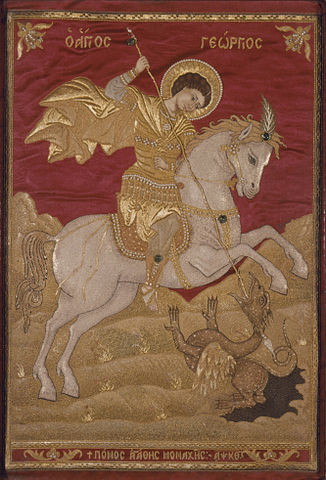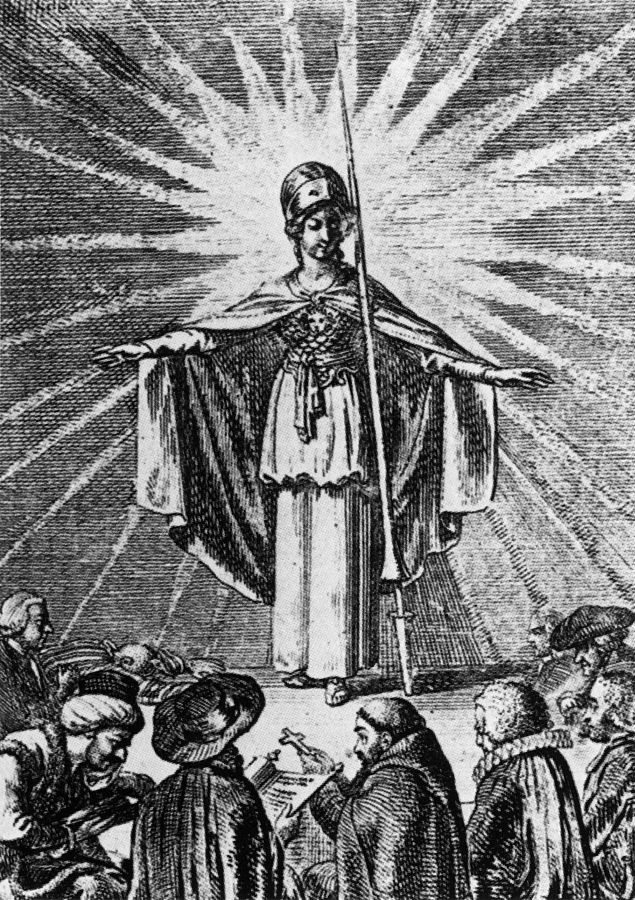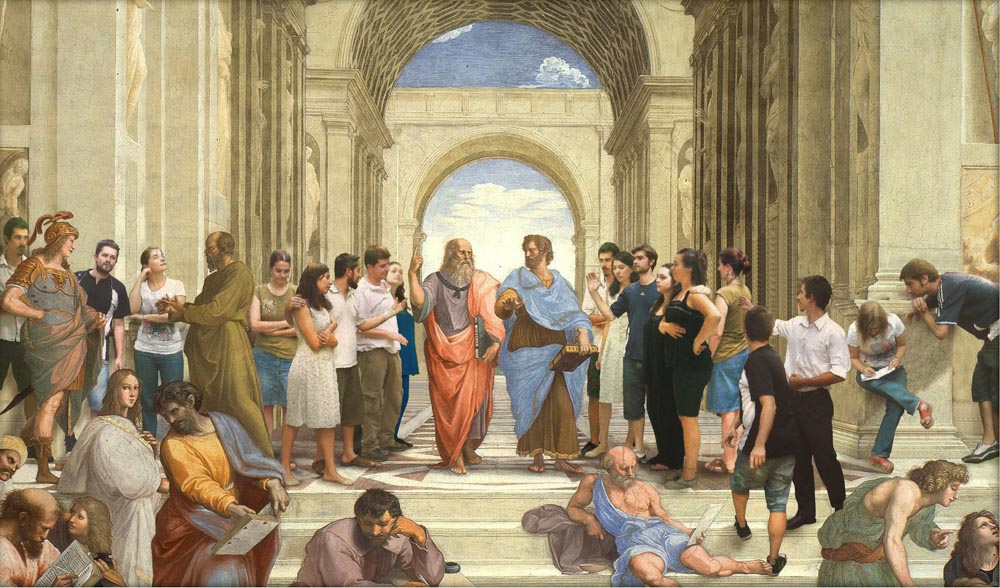Racism, a Product of Modernity
Article By Fernando Schwarz
 Racism can be expressed and experienced on different levels. Not knowing how to value another race or another religion is part of an ethical conception of racism. This is a relatively recent phenomenon. It appears in the Renaissance and especially develops in the 18th and 19th centuries.
Racism can be expressed and experienced on different levels. Not knowing how to value another race or another religion is part of an ethical conception of racism. This is a relatively recent phenomenon. It appears in the Renaissance and especially develops in the 18th and 19th centuries.
Non acceptance has always existed; in this regard, we can speak about a constant in human behavior, together with selfishness and narrow-mindedness, which can even manifest itself within the same family. Not surprisingly, all the moral teachings in the world have promoted tolerance and a greater understanding of the other.
The notions of separateness and segregation existed in ancient times under very different forms than the ones we know today. Nevertheless, even if a people or a human being were considered different, this notion never became a group ideology.
Thus, for the Romans, there were on the one hand those who were civilized, and on the other the barbarians, that is, all the others. But this segregation was neither ethnic nor religious: it was only a question of knowing whether the individuals or peoples in question were or were not integrated into civilization. In this sense the barbarian is simply the foreigner, without any value judgment attached to this term. The barbarian, however, can be integrated and assimilated, and become a full-fledged Roman citizen. It is at the fall of the Roman Empire that the foreigner becomes “evil”. In the 5th century barbarians invaded the empire and destroyed it. It is then that the term “barbarian” starts referring to a “destroyer”, a meaning which was not part of the original term.
In a coherent society, differences are considered as a guarantee of dynamism, originality and harmony. For example, nine ethnic groups were grouped in Egyptian society, and the important thing was to be Egyptian. The important difference was whether one was Egyptian or not. The legal principles that governed the country made it a multiracial society. And this society has been a success at this level.
Rome had black African generals. The important thing was to be Roman and not whether one has this or that skin color. The Roman Empire developed the idea of the ”citizen of the world.” After its fall, where did this great idea of a world where all races and all religions could freely move around and express themselves go?
Man has always been aware of the differences; they are part of his daily existence. But are the differences negative or are they, on the contrary, a criterion of variety, and therefore enriching?
With the entry of the Middle Ages, a uniformity of faith and political system was organized. It is then that a new type of difference appears, linked to the religious aspect. In the desire to homogenize the world, new differences have appeared. These engendered an instinctive defensive act, and from this overly narrow vision came an inability to think that the other may also be right.
Religious or ethnic intolerance flourished in the 18th century, when all the techniques of scientific classification were developed. After classifying minerals, vegetables and animals, the human being also entered the inventory. The expansion of biology contributed to the development of a racism based on physical differences, with the thought that the other’s differences are congenital, irremediable and prevent them from evolving. This is how the West of the eighteenth century came to think that it is necessary to confine “savage” peoples in reserves or to exterminate them. Diderot’s Encyclopedia defined the word “savage” as “Barbarian peoples who live without laws, without police, without religion and who have no fixed place of residence.” It explained by etymology the use of the word, derived from silvaticus [of the woods], because according to the Encyclopedia savages ordinarily lived in forests, giving America as an example, which was supposedly still largely populated by savage nations. No king, no faith, no law, and no fire or home. At first glance, a cascade of negatives connotes the savage state, that is, the natural state of society.
Indeed, the anthropology of the Age of Enlightenment was particularly significant because it sought to account for the recently discovered existence of savage nations, in order to better oppose it to that of the civilized European world. What interested philosophers at that time is to discover the meaning of human history in relation to the evolution of the European nations. In doing so, they “confounded racial appearances with the sociological and psychological productions of human cultures” (C. Lévy-Strauss, Race and History) seeking to place contemporary savage men among the historical ancestors of modern man. This historical order in turn created an order of values.
In 1739, the Comte de Buffon, in his Natural History, marked very clearly the separation between man and animal. He sought at the same time to explain the causes of variations in the human species. The criteria that Buffon recognized were the color of the skin, the shape and the size, and in conclusion, what he calls “the natural” characteristics. If the first three criteria are physical and visible, the natural refers to the interpretation of cultural behaviors. But, to explain the variations deriving from the unity of the human phenomenon, it was necessary to believe that human beings have gradually became distinguished from an original model by degenerating as they moved away from the temperate zone. “Because” – Buffon writes – “the model or the unit to which it is necessary to refer all the other parameters of color and beauty is found in this climate.” These are, then, according to Buffon, the accidental causes that make the nations that populate the Earth vary, thus widening the gulf between civilized Europe and the savage world. Because of the progress manifested by civilized Europe, the savages must be convinced, always following Buffon, to become part of the nature of man again.
Thus, Europe wanted to fulfill, given the degeneration of savages, the mission of leading them to higher law. This becomes the excuse for colonial conquests.
If Voltaire’s goal is different, his conclusions echo those of Buffon in that he places Europe at the pinnacle of civilization. He sees among the peoples of the Earth such differences that he believes savage men to be of another species. On the basis of these different degrees of genius, which seem to vary so strangely, Voltaire proclaims the superiority of the cultivated nations and the logic of domination over the whole world. And if he protests against the atrocities of the conquerors, it is because he would like to see civilization triumph not by violence, but only by right and reason. The savage man is always the opposite of civilized man, and very often reduced to the quality of primitive. History thus oriented places savage peoples in the infancy of Humanity and designates Europe as the missionary of civilization after having been so in regard to religion. It is in the name of the superiority of the civilized that progress and its order are imposed.
Appearance and realities of Western racism in the 20th century
Behind an appearance of a great openness of mind, unclear conflicts are sometimes hidden. The difference is apparently acknowledged and accepted as normal, but if a concrete problem arises, a real contact, then it becomes clear that nonacceptance was actually a dormant feeling, momentarily subdued: the difference was tolerated, that is, it was endured, but it was not accepted. In order to adequately treat this problem, one must, first of all, accept the difference and not only tolerate it temporarily.
Racism is born as a result of the difficulty each person experiences to accept the other, refusing, voluntarily or involuntarily, to open to others.
The human being abandons himself to his habits: routine, comfort, and the laziness of questioning our ideas, limit us terribly. This load of prejudices, of which we are not aware most of the time, is an obstacle to opening up to the other. Human beings breathe the same air, share the same planet, have the same origins, the same mother (Nature). Their physical, psychological and spiritual structures are common. Our experiences have changed us, but our paths have not changed. It is true that each human being is different because of their outer and inner goals. This is also observed in their psychology, sensitivity, tastes, and objectives. It is no less true that there is a common denominator, which is Humanity. This common root creates union, but the dynamism of life forces the appearance of differences. We must be cautious about homogenization, because it often involves disappearance, destruction. Does Claude Lévy-Strauss not insist on the fact that any tendency to homogenization inevitably entails annihilation? The diversity of experiences allows the development of undeniable survival qualities. All human groups have contributed their part to the human experience. To develop a uniform culture would be to reach a planetary catastrophe. That is why certain international organizations try to promote difference but not segregation.
All systems that aim to homogenize a society make it lose its tone. This is the case of collective societies that do not allow the expansion of human potential; millions of beings are deprived of the possibility of keeping a living memory of multiple possibilities. They tend to be uprooted and therefore to make the entire planet into a clean slate.
Image Credits: By Aarón Blanco Tejedor | Unsplash | CC0
The entity posting this article assumes the responsibility that images used in this article have the requisite permissionsImage References
By Gabby K | Pexels | CC0
Permissions required for the publishing of this article have been obtained
Article References
Translated from the Spanish website




What do you think?